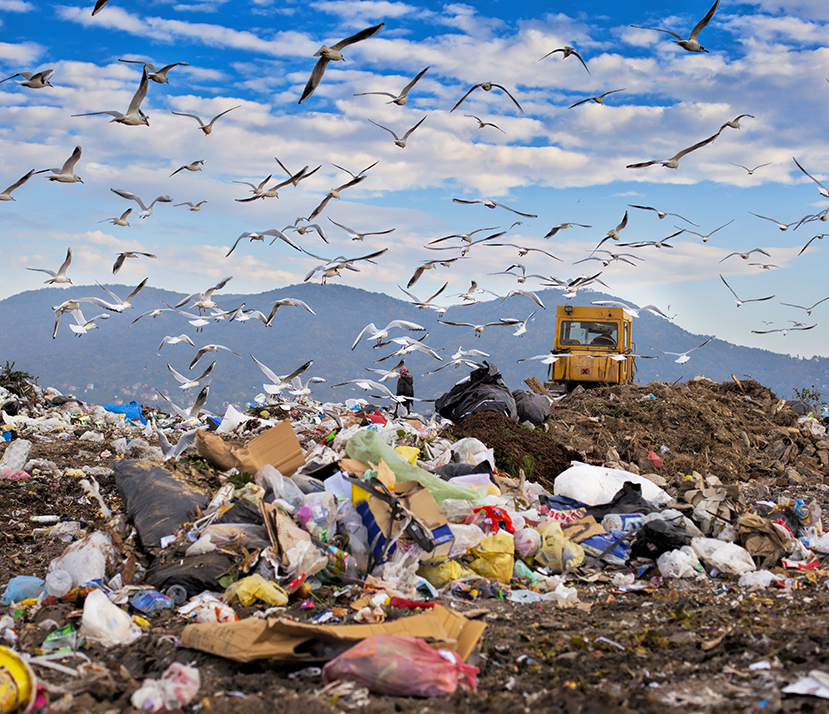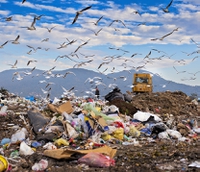16 May 2019 --- Dr. Mikko Paunio of the University of Helsinki has warned that the UN’s decision to regulate waste plastic as hazardous and restrict exports will unleash a “surge of waste” on many EU countries. Paunio urges a rapid expansion of waste incineration capacity to stop the plastic...

www.packaginginsights.com
Brace yourself: EU faces “massive flood of plastic waste” after UN export restrictions
Finnish public health expert stresses the need for increased incineration capacity to prevent a disaster
16 May 2019 --- Dr. Mikko Paunio of the University of Helsinki has warned that the UN’s decision to regulate waste plastic as hazardous and restrict exports will unleash a “surge of waste” on many EU countries. Paunio urges a rapid expansion of waste incineration capacity to stop the plastic waste problem turning into a public disaster.
Last Friday,
a total of 187 countries voted to add hard-to-recycle plastic waste to the Basel Convention, a UN-led treaty that controls the movement of hazardous waste from one country to another. Exporters will now be required to obtain consent from recipient countries before shipping plastic waste that cannot be readily recycled. It is a strategy designed to curb the overwhelming buildup of plastic waste in Global South nations, particularly in Southeast Asia.
The new restrictions are a “major victory for the natural environment” – particularly the rivers and oceans of Asia – in the eyes of Paunio, but a victory that will leave the EU with a drastically increased and unmanageable volume of plastic waste.
After China banned the import of most plastic waste in 2018, developing countries such as Indonesia, Thailand and Malaysia have received huge influxes of contaminated and mixed plastic waste that is difficult or even impossible to recycle. Norway’s proposed amendments to the Basel Convention provide countries with the right to refuse unwanted or unmanageable plastic waste.
According to Paunio, the new restrictions will mean that exports of plastic consumer waste to developing countries will largely come to a halt and EU nations will “finally be left to face the reality” of a failed recycling system.
“It goes without saying that most of the recycling industry has vehemently opposed Norway’s proposal, and the US, a major recycler of plastic waste, was also opposed, although it is not a party to the Basel Convention. China may well have supported the initiative because it no longer imports recyclates. Finland and some other EU member states may have done so too,” Paunio notes.
Green NGOs were predictably in favor of the amendments, although Paunio believes they remained low-key actors in the process due to concerns that the problems caused by plastic recycling might become more widely known.
However, the media circus around the amended Basel Convention is likely to put those problems in the headlines regardless.
“The inability to export all but the cleanest sorted waste adds to the problems faced by the EU recycling industry, which is already struggling to deal with the loss of the Chinese export market and the relentless tightening of restrictions on landfill,” says Paunio.
“Moreover, it already lacks – by a considerable margin – the incineration capacity necessary to deal with current levels of waste, let alone the extra volumes that will result from the stringent requirements of the Circular Economy package and from the Basel Convention decision,” he adds.
In its attempt to address global warming, the EU is demanding that 55 percent of plastic waste is recycled. Paunio believes the attempt will be hugely expensive, release microplastics into the oceans and fail anyway. “Landfill is not an option, and incineration capacity is inadequate. Now that it’s no longer possible to export the problem away, the EU will be hit with a surge of waste that we can’t deal with,” he says.
This will put the recycling industry, green-minded politicians and their supporters in the mainstream media into a very difficult position, according to Paunio. “The waste management industry will no longer be able to dump waste on poor countries and pretend that they are ‘recycling.’”
“The cost of annually recycling tens of millions of tons of dirty plastic scrap in EU will be astronomical, while still producing a very large proportion of reject material, which will have to be incinerated anyway. Politicians and the media may well be forced to come clean about what a bad deal they have been giving taxpayers up until this point.”
“Either way, EU member states are going to have to quickly increase incineration capacity. If they do not they will bring about an environmental disaster that will make the Campania crisis look like a walk in the park,” Paunio concludes.
The Campania crisis, which took place in Naples, Italy, was caused by the decision by the local authorities to adopt an anti-incineration waste policy in the late 1990s, Pauniov explains. The theory was that waste should be mechanically separated into a combustible fraction of mixed waste for co-incineration with traditional fuels, and an organic fraction for composting or anaerobic digestion. However, the 2000 EU Waste Incineration Directive, with its costly regulatory demands, made it uneconomic to co-incinerate ecoballs.
Paunio sets out his concerns in a new paper entitled
Saving the Oceans and the Plastic Recycling Crisis, which the Global Warming Policy Foundation published this week.
The Foundation first revealed that climate change policy was an important cause of marine plastic waste in an earlier paper by Paunio, called
Save the Oceans: Stop recycling plastic, published last year.
Edited by Joshua Poole







 ..tähän liittyen kysykää itseltänne miksi "EU-federaatiohimmeli" haluaa vähentää /lopettaa/ rajoittaa muovituotteiden käyttöä ?
..tähän liittyen kysykää itseltänne miksi "EU-federaatiohimmeli" haluaa vähentää /lopettaa/ rajoittaa muovituotteiden käyttöä ? 






 .
.